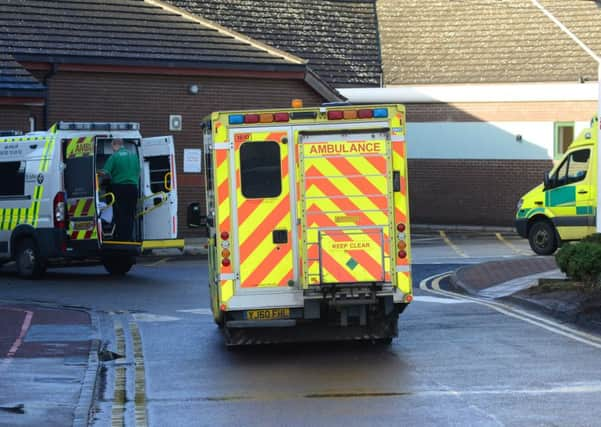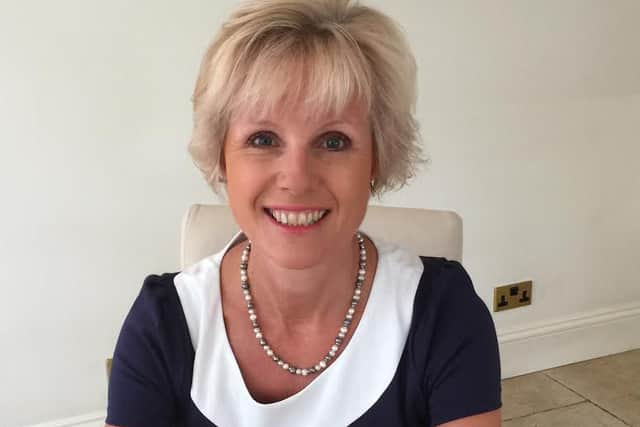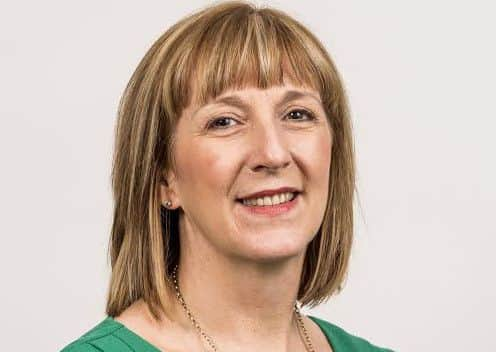Sheffield health services shake-up to deal with city's ageing population


NHS bosses in the city are set to give the go-ahead to major changes to healthcare in both hospitals and doctors’ surgeries – with the reforms due to make it less likely for people to see a GP for routine appointments, as well as efforts to ensure A&E is only used by people with genuine medical emergencies.
Officials say the ‘more community-based approach to healthcare’ should actually benefit patients as health bodies attempt to do more with less and deal with a growing population in which people are living longer with more complicated health problems requiring treatment.


Advertisement
Hide AdAdvertisement
Hide AdStrategy proposals have been approved by the NHS Sheffield Clinical Commissioning Group’s governing body.
Maddy Ruff, accountable officer for NHS Sheffield CCG, said: “It is about the right people being seen in the right place.
“People are pitching up at A&E with a whole raft of things wrong with them but many of them should be seen in a primary care setting. They don’t need to go to A&E.
“It is not called the emergency department for no reason.”


She said changes are being planned with patient welfare as the first priority instead of financial considerations.
Advertisement
Hide AdAdvertisement
Hide Ad“The first principle has got nothing to do with money. It is about what is the best place for patients to be seen – the best place is as close to home as possible,” she said.
“Patients should only really be going to hospital if they absolutely need to. The whole experience of being seen in the community is just so much nicer.”
One aim of the shake-up is to allow GPs more time with patients with multiple and complex long-term health conditions – a move that will see surgery doctors dealing with fewer routine appointments.


Instead, practice nurses and community pharmacists will deal with patients with ‘less complex’ conditions.
Advertisement
Hide AdAdvertisement
Hide AdMaddy added that it will take time to change people’s expectations about who will see them for GP appointments.
She said: “It is always going to be a challenge because no one likes change. If you were to ask people in Sheffield, having a good relationship with your family doctor is quite high up on their priorities.
“It is not just with the family doctor, it is with the practice.


“We need to help people feel confident they will get seen by the right person with the right skills in a timely way.
Advertisement
Hide AdAdvertisement
Hide Ad“If people feel confident, they will soon adapt to the change. If they do see a nurse or a physio or a pharmacist where perhaps they have seen a GP in the past, they should feel confident that person has the right skills and expertise and that is they do need to see a doctor, they can.”
Around nine areas of Sheffield are already using the nurse practitioners to take appointments instead of GPs, with the scheme to be expanded across the city over the next year if the shake-up plans are approved.
The strategy is promoting a new ‘neighbourhoods’ approach to healthcare, with support teams working with communities of around 30,000 to 50,000 people. It is intended services including social care, police and education will work together to improve health outcomes for people living in their areas.
Figures show that a high proportion of Sheffield’s general practice staff are close to retirement, with 17 per cent of GPs, 31 per cent of practice nurses and 34 per cent of practice managers within a decade of retiring.
Advertisement
Hide AdAdvertisement
Hide AdKatrina Cleary, programme director for primary care at the CCG, said another part of the city’s health strategy is ensuring professionals can be attracted to work and stay in Sheffield.
She said: “Workforce is a big issue nationally and the General Practice Forward View plan over the next five years is aiming to recruit another 5,000 GPs.
“The challenge for us is to make sure we get our share of that and make Sheffield as attractive as possible.”
Another part of the plan is the creation of a new urgent care centre at the Northern General Hospital. The service – potentially to be based in office space by the new helipad at the Northern General – would be run by local GPs and help assess what type of medical professional can deal with each patient, helping to reduce pressure on A&E as a result.
Advertisement
Hide AdAdvertisement
Hide AdKatrina said reducing the number of people going into hospital could cut NHS costs and allow more money to go into supporting community services.
She said: “Too many people are ending up in hospital where they don’t need to be and that has a cost to it. If you can keep people in their home and treat people in their home, that reduces that cost and enables us to invest in community services.”
Maddy said: “We know we face challenges in the future, with a population with more complex health needs and an increasingly challenging financial situation. We believe that by being ambitious and embarking on big transformational change plans now, whilst the system is relatively strong, that we can maintain the quality and financial stability of our city’s great services.”
Work will now take place with patients and staff to develop specific proposals for the future of healthcare in the city.